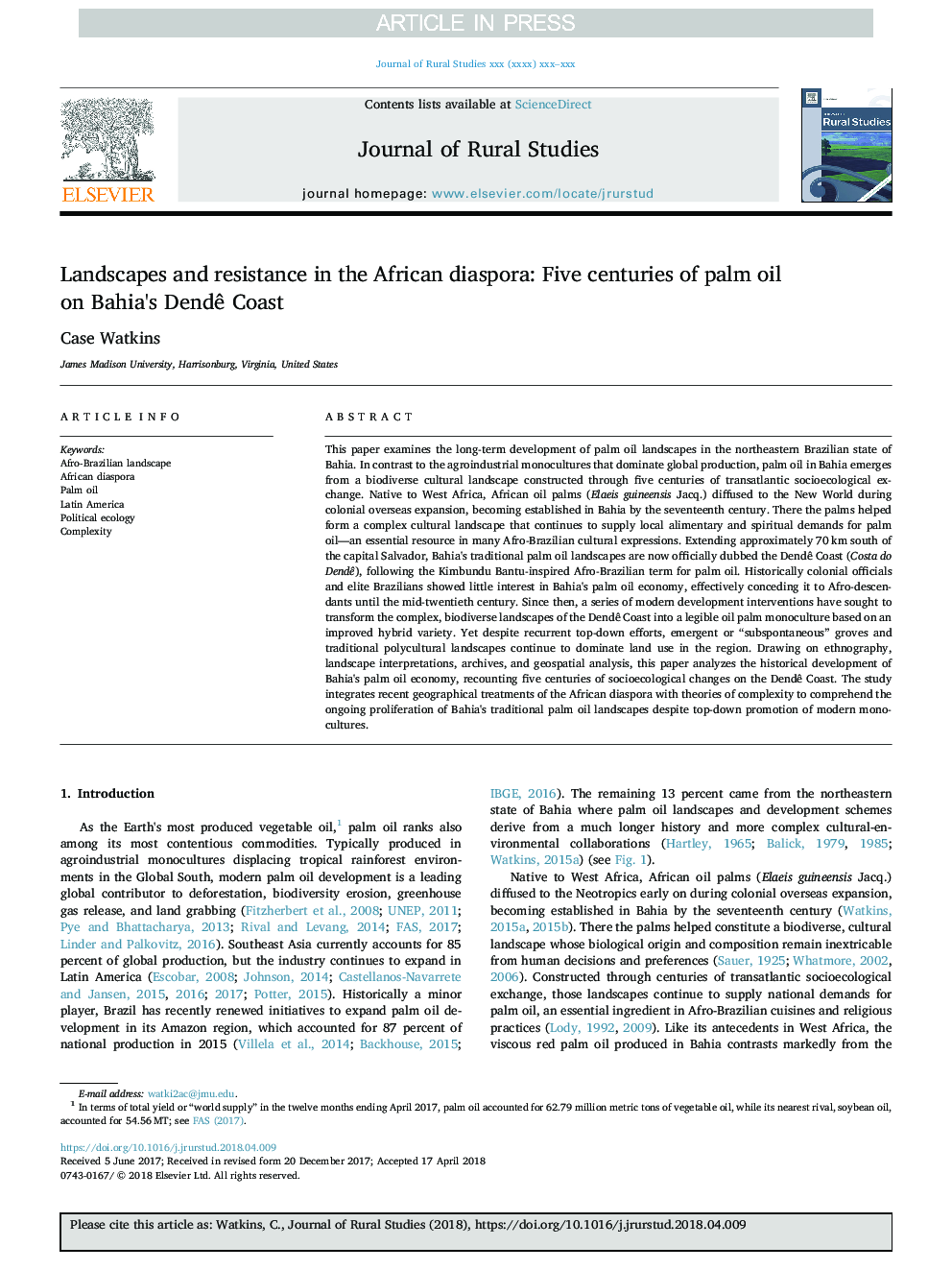| Article ID | Journal | Published Year | Pages | File Type |
|---|---|---|---|---|
| 6545244 | Journal of Rural Studies | 2018 | 18 Pages |
Abstract
This paper examines the long-term development of palm oil landscapes in the northeastern Brazilian state of Bahia. In contrast to the agroindustrial monocultures that dominate global production, palm oil in Bahia emerges from a biodiverse cultural landscape constructed through five centuries of transatlantic socioecological exchange. Native to West Africa, African oil palms (Elaeis guineensis Jacq.) diffused to the New World during colonial overseas expansion, becoming established in Bahia by the seventeenth century. There the palms helped form a complex cultural landscape that continues to supply local alimentary and spiritual demands for palm oil-an essential resource in many Afro-Brazilian cultural expressions. Extending approximately 70â¯km south of the capital Salvador, Bahia's traditional palm oil landscapes are now officially dubbed the Dendê Coast (Costa do Dendê), following the Kimbundu Bantu-inspired Afro-Brazilian term for palm oil. Historically colonial officials and elite Brazilians showed little interest in Bahia's palm oil economy, effectively conceding it to Afro-descendants until the mid-twentieth century. Since then, a series of modern development interventions have sought to transform the complex, biodiverse landscapes of the Dendê Coast into a legible oil palm monoculture based on an improved hybrid variety. Yet despite recurrent top-down efforts, emergent or “subspontaneous” groves and traditional polycultural landscapes continue to dominate land use in the region. Drawing on ethnography, landscape interpretations, archives, and geospatial analysis, this paper analyzes the historical development of Bahia's palm oil economy, recounting five centuries of socioecological changes on the Dendê Coast. The study integrates recent geographical treatments of the African diaspora with theories of complexity to comprehend the ongoing proliferation of Bahia's traditional palm oil landscapes despite top-down promotion of modern monocultures.
Related Topics
Life Sciences
Agricultural and Biological Sciences
Forestry
Authors
Case Watkins,
